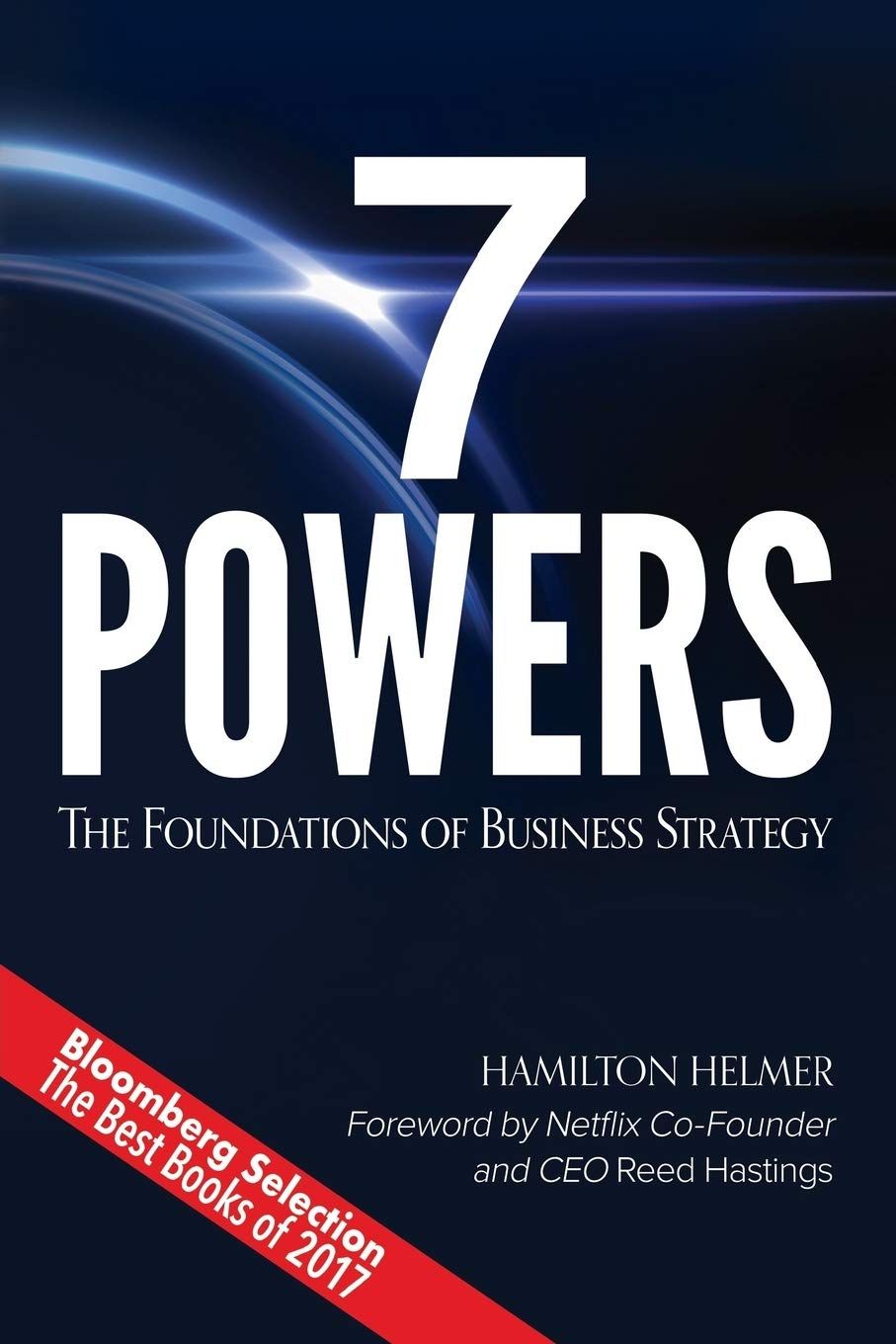Note: This is the first Innovators Brief that is publicly available. Briefs 1-156 were sent to a private group of subscribers.
Hey Jumpers,
I really appreciate the 59% open rate for the last Innovators Brief after not writing one for a while! Life has been very busy with a one-year-old running around.
Today’s brief might be the most important Innovators Brief yet.
Here’s what we’re going to cover:
The biggest mistake I find myself making in the age of AI, crypto and constant innovation
The most important book I have ever read
Why it’s time to recommit to the art of strategy
A quick exercise that will immediately kick-start your strategy muscle
Updates on the Innovators Brief
Let’s jump in.
The Big Mistake I’ve Been Making
I’ve found myself making a huge mistake and I’m certain many other people are falling into the same trap.
With so much innovation happening around us, particularly with AI, it is really easy to chase shiny objects and lose sight of the most important aspect of business, which is strategy.
It’s easy to slip into thinking that new tech will give you a competitive edge. The reality is that a competitive edge is only obtained through great strategy.
Rather than chasing new shiny objects, I’ve rediscovered the importance of applying a rigorous strategy discipline to help guide how and when new trends can be leverage.
The Most Important Business Book I’ve Ever Read
I recently came across the book, “7 Powers: The foundations of Business Strategy” by Hamilton Helmer.
It’s the first business book in a long time that felt like a missing operating system.
It’s a clean, complete, non-fluffy answer to the question: “What actually makes a company win?”
Whether it’s a crypto protocol, an AI foundation model, or a niche DTC brand, if it’s valuable, it has one (or more) of these 7 Powers underneath it.
There’s no doubt in my mind, this is the most important business book I’ve ever read.

Why Strategy Matters More Than Ever
Here’s the core problem I see today: We’re speeding up execution while dumbing down the thinking that guides it.
AI is collapsing the cost of producing anything. But when everything is easy to create, only those with a clear, defensible strategy will avoid wasting time, talent, and capital.
This is why I believe strategy is the most valuable skill of the next decade. And Helmer’s framework is the cleanest foundation I’ve found for building it.
7 Powers isn’t a replacement to all of the great business books and strategy frameworks, but I do view it as the foundation. It is the starting point and the north star.
Once you see the 7 Powers, you can’t unsee them.
The 7 Powers: Strategy’s Core Operating System
Once a business knows which of the 7 Powers they need to pursue, a series of strategic frameworks and bets can be made, all of which ladder back to capturing and maintaining the target Power.
Everyone from the CEO to any entry level employee can apply the 7 Powers to their company or day-to-day work.
I’m not going to explain the 7 Powers in detail. And honestly, just listing them here doesn’t do the book justice.
Helmer outlines a benefit and competitive barrier for each power.
He describes in detail how to know if a business actually has a given power.
He outlines which powers are likely present in early-stage companies vs. late-stage companies. How companies evolve from one power to the next over the course of time.
Here are the 7 Powers so you can get a feel for them:
Scale Economies: The bigger you get, the cheaper you operate
Network Economies: Each new user adds value you all other customers
Counter-Positioning: A model incumbents can’t adopt without hurting themselves
Switching Costs: Once you’re in, it’s painful to leave
Branding: The value of the story people believe about you
Cornered Resource: You have access to something nobody else does
Process Power: You’re operationally better in ways that are hard to copy
Signal vs. Noise: AI & "Speed-to-Market"
After diving into the 7 Powers, you’ll start to see interesting insights everywhere.
I was listening to a16z's podcast on AI moats. They emphasized “speed-to-market” as the top moat in the age of AI.
But if you know Helmer’s 7 Powers, you realize “speed-to-market” is a trait, not a moat, unless it meets the bar for Process Power.
And if it doesn’t, it might just be table stakes. This is why having a strategy lens matters. It lets you separate signal from noise.
In fact, Helmer would likely argue that early-stage AI companies are first built around the power of a Cornered Resource or Counter-Positioning, and need to quickly acquire the power of Scale Economies, Network Economies, or Switching Costs.
Based on Helmer’s insights around Process Power, he says this is actually incredibly difficult to achieve.
The main point I’m trying to make is that you can map any strategy conversation back to one of the 7 Powers, no matter what strategy frameworks or words are being used.
Despite the fact that I would heavily debate the “speed-to-market” moat aspect of this pod, if you’re looking for a good conversation about AI, definitely give this a listen.
As AI Drives Execution Costs to Zero, the Most Valuable Thing You Can Work On Is Strategy
The cost to create anything is falling dramatically as a result of AI. And because of that, the winners will be determined by the quality of their strategic capabilities.
I don’t believe AI is particularly good at strategy.
AI systems struggle at thinking about the future. And strategy at its core is both anticipating and creating a future state.
While AI struggles at future state assignments, I have still found it incredibly helpful in assisting me in the strategic process.
But ONLY when I guide it correctly. For example, a strategic process that sets the 7 Powers as the foundation is much different than a strategic process that doesn’t, and both will result in very different outcomes whether AI assists you or not.
Strategy Exercise: Build a 7 Powers AI Strategy Assistant
Ok, I promised a helpful exercise.
This will be super easy and valuable if you do it!
Here’s a fast, high-leverage way to build your own 7 Powers Strategy Assistant using ChatGPT:
Prompt 1: “Please summarize the 7 Powers by Hamilton Helmer.”
Prompt 2: “What is strategy?” (The first prompt gives your AI context for this question.)
Prompt 3: “Please act as an expert strategist who uses Helmer’s 7 Powers as your strategic compass. All other strategic frameworks or models should ladder up to or enhance one of the Powers.”
There you go, you’ve just created your own 7 Powers AI strategy assistant. From here, ask any questions you’re curious about! Use this as an opportunity to re-engage your strategic muscle.
What to Expect from the Innovators Brief Moving Forward
If you’ve been reading for a while, you know this newsletter is about helping you Jump Into the Future.
Moving forward, this Brief will still cover AI, crypto, and emerging trends … all the stuff you’re used to, but always through the lens of strategy. The intersection of strategy and emerging tech is what I’m most excited about right now.
If the art of strategy isn’t something you’re interested in, now would probably be a good time to unsubscribe from the Innovator’s Brief.
A Personal Note
My daughter just turned one. Since she was born I’ve written just a handful of Innovator Briefs. Client work and a small child don’t leave much room for multi-hour thinking and writing sessions.
That said, I will try to get a couple of these briefs out each month. If you don’t hear from me, just know I’m always cooking the next brief and would much rather focus on quality rather than quantity!
Extra Credit
Share this email with a smart strategist you know. Or three.
Reply with your favorite business or marketing book. I’m building a 7 Powers-aligned strategy library and will share it soon.

